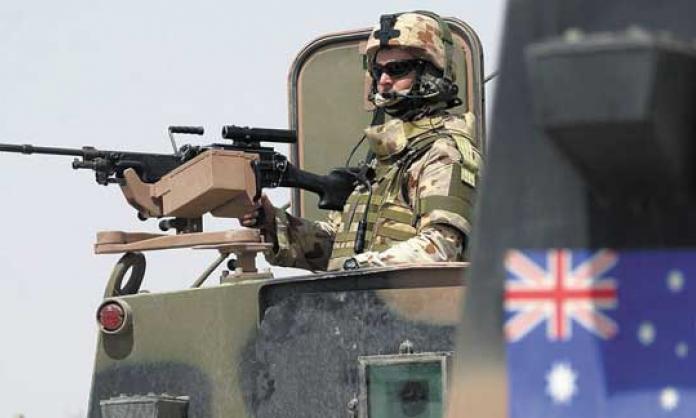Australia has spent $15 billion on overseas military operations since 1999, according to recent Department of Defence documents.
The most expensive of these was “Operation Slipper” (the war in Afghanistan), which cost almost $7 billion. “Operation Catalyst” (the Iraq war) cost $2.3 billion.
Money spent spreading murder around the globe is to increase by a further $1 billion or more between now and 2016-17.
Australia’s contribution to the aerial war against the Islamic State is estimated to cost $500 million a year.
This at a time when the government is crying poor on the most basic welfare services, such as health, education and unemployment benefits. “Unsustainable debt and deficits” is the mantra of the government as it attacks basic services for the working class. But debt is no obstacle to the business of war.
The second most expensive operation was “Operation Astute”, the so-called peace mission to Timor-Leste, formerly East Timor. Far from restoring calm, the 2006 mission actually helped to force out prime minister Mari Alkitiri, a nationalist hostile to the Australian government and other foreign powers’ interference in local affairs.
According to a leaked Defence Department document, the “first objective” in Timor was for the military to “seek access” so that Australia could have more “influence over East Timor’s decision-making”. This undertaking cost $4.3 billion. It cost the Timorese more, helping to deprive them of the wealth of their undersea oil and gas resources in favour of Australian businesses.
The 2013-14 defence annual report states that “operations include those that contribute to the security of the immediate neighbourhood and those that support wider interests” – an example of what journalist John Pilger has dubbed “Australia’s hidden empire”.
“Operation Anode”, a colonial-style intervention into the Solomon Islands in 2003, cost $355 million and took over the central functions of the state, including finance, policing and the legal system, to the benefit of Australian business interests.
For ordinary people who foot the bill for militarism, this expenditure is a burden and a waste. For the Australian government and big business, it is an opportunity to expand their political and economic influence.








